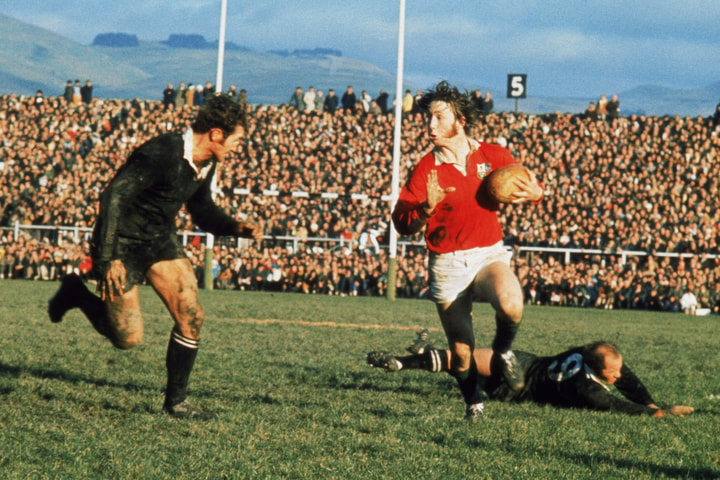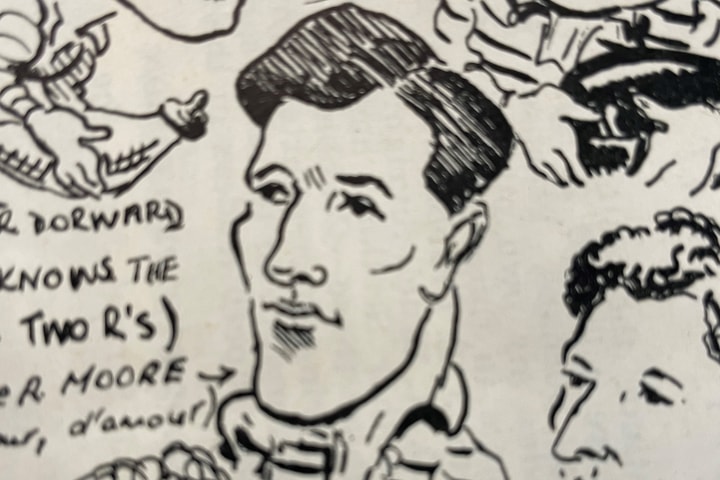In memory of the great Phil Bennett, here is an interview he gave to the World Rugby Museum about his fond memories of playing at Twickenham…
Phil Bennett was the complete, the all-round, fly-half, a man who conjured up tries and wins for Wales with astonishing regularity during an international career which spanned 10 seasons between 1969 and 1978.
In that time Bennett experienced the glory of three Grand Slams, tasted the triumph of five Triple Crowns, and of course this man had his days at Twickenham.
Oddly, while many Englishmen remember Bennett for the three penalties he kicked at HQ to win the Five Nations match and help Wales to the Grand Slam in 1976 - "I thought Allan Martin kicked one of those," he said, his memory playing tricks with him - in fact the match which remains his favourite came much earlier than that. At the beginning of the previous decade to be precise, when a callow, 15-year-old Bennett travelled to Twickenham as a member of a Wales Schoolboy team to take on their English counterparts.
"It was quite a trip for us," recalled Bennett. "I lived in Felinfoel, the village where I was born, just outside Llanelli and there I was, heading for London. It was a fantastic feeling for a young Welsh boy to know I would be playing at this great stadium.
"Although memories of the match are vague we did beat England and I contributed to the win by landing a 45-yard drop goal.
"To this day I do not know where I got the strength to kick the ball that far, in those days they were big, heavy balls which got even more heavy when they got wet.
"I was playing at fly-half and the player marking me was a teenage flanker who was to go on and win caps for England, Tony Neary.
"It was played on a Wednesday and in the evening there was a sports programme on television introduced by Peter Dimmock and our win and my drop goal was mentioned on that.
"We travelled back to Wales and the following day there was a report on the match in the Daily Express, written by their correspondent Pat Marshall and my father cut the article out of the paper,
"When I went for a walk in the village everyone said they had seen me on TV the previous night and that it was a great drop goal. I felt like a superstar. It was a great experience for a youngster.
"At school two of the teachers said how well the team had done, and Derek Quinnell, who had been a reserve for the match, and I were singled out for congratulations."
Bennett still lives within shouting distance of Felinfoel, around half a mile outside the village, but he is known for his exploits all over Rugby World.
The victory over England at Twickenham in February 1978 laid the foundations for an incredible fourth Slam of that decade, which was achieved against France in a thrilling game at Cardiff Arms Park a month later.
In contrast to that thrilling introduction to Twickenham, Bennett recalls that it was a poor match. "It was bitterly cold and raining," said the former British Lion.
"Alastair Hignell kicked two penalties for England, and the reason I thought Allan Martin had kicked one of our three was because he always used to ask to take the long kicks.
"But when we were awarded a penalty very late in the game, with the score level at 6-6, I did not hear Allan asking to take the kick, that one was left for me."
He landed the kick and after the France match hung up his boots. But Bennett had shared in a far more convincing victory over England at Twickenham two years earlier, when again they completed the Grand Slam.
It was a match he had not originally been picked for after falling foul of the 'Big Five' the Wales selectors, after aggravating an ankle injury which had originally kept him out of a Wales trial match precisely to avoid re-injuring himself. He was axed from the squad, only to be recalled at a very late stage after the first and second choices at fly-half, John Bevan and David Richards were themselves injured.
Although Bennett did not get on the scoresheet that day his pass sent in JPR Williams for the fullback's second try as Wales ran up what was their highest winning margin at Twickenham at that time.
Bennett's memories of the old stadium are headed by the baths. "They were wonderful, big things," he said. "It was great just to lie in one of those baths filled with boiling hot water, for half an hour after a hard match on a cold day.
"And the atmosphere at Twickenham was wonderful. The crowd never tried to put me off my goal kicks by making a noise. And I never felt intimidated by the crowd even though they were practically within touching distance of the pitch.
"When you went to collect the ball after it had been kicked into touch someone in the crowd would invariably say something."
But unlike so many players who played at Twickenham before the ground underwent its transformation into one of the finest rugby stadia in the world, Bennett feels the redevelopment has not spoiled Twickenham for him.
"I think it has kept a lot of its character. It's a lovely stadium. These days when I am doing my broadcasting work I love to go into one of the bars for a pre-match shandy and just take in the atmosphere there. It is great, it still has a certain sparkle."
Article by Dai Llewellyn





